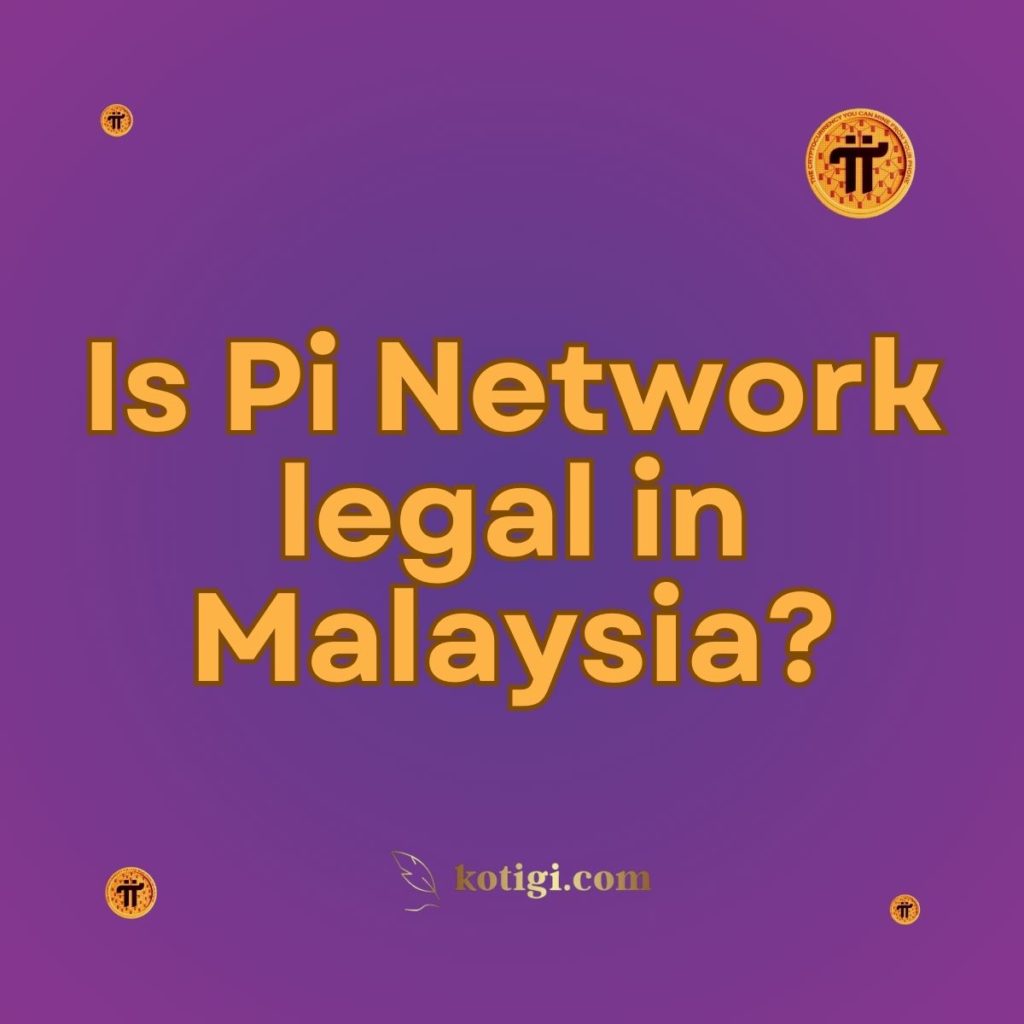
Is Pi Network legal in Malaysia?
Pi Network’s legal status in Malaysia is not explicitly defined, as the country has yet to release specific regulations targeting the platform. However, understanding Malaysia’s broader cryptocurrency laws provides insights into how Pi Network may be viewed within the country’s regulatory framework.
Cryptocurrency Regulations in Malaysia
Malaysia has taken a relatively cautious approach to cryptocurrency, allowing its use but under strict regulations. The primary regulatory body overseeing digital assets is the Securities Commission Malaysia (SC). In 2019, the SC classified cryptocurrencies as securities, meaning they are regulated under securities laws.
The Capital Markets and Services (Prescription of Securities) (Digital Currency and Digital Token) Order 2019 outlines the framework for cryptocurrency businesses. Exchanges, Initial Coin Offerings (ICOs), and other crypto-related services must be registered and comply with anti-money laundering (AML) and counter-terrorism financing (CTF) regulations. The Bank Negara Malaysia (BNM), the central bank, also monitors the cryptocurrency space but does not recognize digital currencies as legal tender.
While cryptocurrencies like Bitcoin and Ethereum are permitted, they are closely regulated. Users can trade, hold, and invest in cryptocurrencies, but companies dealing with digital assets must adhere to the country’s legal requirements.
Where Pi Network Stands in Malaysia
Pi Network is currently in its testnet phase, and its Pi coins have no real-world value at this point. Because Pi is not yet traded on exchanges or used for monetary transactions, it falls outside the traditional regulatory scope that governs cryptocurrencies in Malaysia. This means that Malaysian users can mine Pi on their mobile devices without any direct legal implications.
As of now, no specific legal actions or regulations have been issued by Malaysian authorities regarding Pi Network. The platform operates freely in the country, allowing users to participate in its ecosystem.
Potential Future Legal Considerations
Once Pi Network fully launches its mainnet and Pi coins become tradable on exchanges, the platform will likely fall under the purview of Malaysia’s existing cryptocurrency regulations. If Pi coins are classified as securities, Pi Network would need to register with the Securities Commission Malaysia, ensuring compliance with AML, CTF, and Know Your Customer (KYC) regulations.
In this scenario, Pi Network could face stricter scrutiny, similar to other cryptocurrencies, to ensure the platform is not used for illegal activities. It would need to follow the country’s regulatory requirements to legally operate in Malaysia’s financial ecosystem.
No Official Ban on Pi Network
There is currently no official ban on Pi Network in Malaysia. The platform is freely accessible, and users can participate in mining without facing legal challenges. Since Pi is still considered a developing project with no tradable coins, it remains outside the regulatory boundaries that affect more established cryptocurrencies.
Conclusion
Pi Network is currently legal in Malaysia, with no specific restrictions or regulations targeting its use. Malaysian users can mine Pi coins without legal risks. However, once the network transitions to its mainnet and Pi coins become tradable, it may fall under the existing cryptocurrency laws governed by the Securities Commission Malaysia. This could introduce regulatory obligations for the platform, including compliance with securities regulations, KYC, and AML requirements.
For now, Malaysians can participate in Pi Network freely, but they should stay informed about any future changes in local cryptocurrency laws that could affect Pi once it becomes fully operational.




